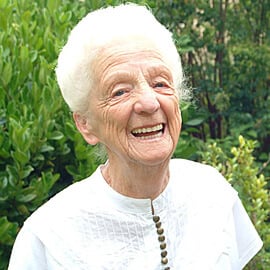Alzheimer's disease is the most common form of dementia, accounting for between 50 to 70 percent of cases. It is a physical condition which attacks the brain, resulting in impaired memory, thinking and behaviour. As brain cells shrink or disappear, abnormal materials build up as ‘tangles' in the centre of the brain cells and ‘plaques' outside them.
These disrupt messages within the brain, damaging connections between brain cells. The brain cells eventually die and this means information cannot be recalled. Depending on the area of the brain, certain functions or abilities are lost. Memories of recent events are the first to be affected, but as the disease progresses long-term memory is also a lost. The disease further affects many of the brain's other functions and consequently many aspects of behaviour are affected.
Once an ability is lost it can be rarely regained or relearned. Researchers are still trying to find the cause of Alzheimer's. Direct inheritance occurs only in the far less common Familial Alzheimer's Disease; it affects a very small number of Australians, usually in their 40s and 50s. Direct inheritance does not occur over the age of 65.
Vascular dementia is the second most common form of dementia after Alzheimer's disease. It is a broad term for dementia associated with circulation of blood to the brain. Anyone can be affected by vascular dementia but several factors increase the risk. These include high blood pressure, smoking, diabetes, high cholesterol, history of mild warning strokes, evidence of disease in arteries elsewhere and heart rhythm abnormalities. While treatment cannot reverse the damage it can prevent additional damage being done.
For more information on Alzheimers or Dementia please visit this website.






